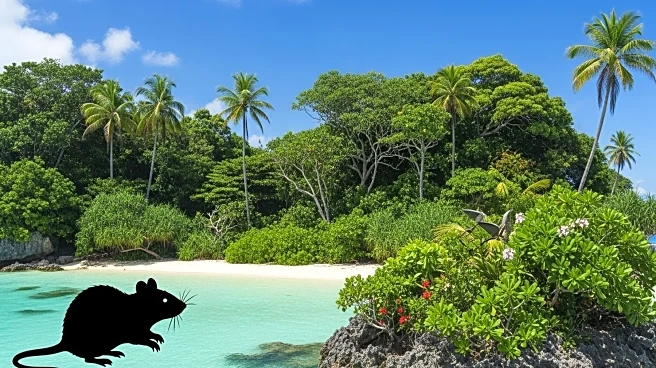What's Happening?
Island Conservation, a U.S.-based nonprofit, has successfully eradicated invasive rats from Bikar Atoll and Jemo Islet in the North Pacific, part of the Marshall Islands. The rats, which arrived as stowaways on ships, had caused significant ecological damage by preying on native vegetation and wildlife, including endangered green sea turtles and seabird colonies. The eradication project involved dropping rat bait by drone across the islands in July 2024. Following intensive monitoring, it was confirmed that the islands are now rat-free. As a result, native species such as seabirds and Pisonia grandis trees are beginning to recover.
Why It's Important?
The successful removal of rats from these islands is significant for biodiversity conservation. The return of native species and the restoration of natural processes are crucial for maintaining ecological balance. This project serves as a model for similar conservation efforts worldwide, highlighting the effectiveness of targeted eradication programs. The initiative also underscores the importance of community involvement and awareness in conservation efforts, as local communities hope to return to traditional practices that were disrupted by the ecological damage caused by the rats.
What's Next?
The focus now is on maintaining the rat-free status of these islands. Due to their remoteness and the involvement of local communities, there is optimism that the islands can remain free of invasive species. The success of this project may lead to similar efforts on other islands, with feasibility studies already underway for Bokak Atoll. The project highlights the potential for long-term ecological recovery and the importance of continued vigilance and biosecurity measures to prevent future invasions.
Beyond the Headlines
This eradication project not only restores ecological balance but also has cultural and economic implications for local communities. The revival of traditional practices such as fishing and harvesting is now possible, contributing to the cultural heritage and economic sustainability of the region. The project also raises awareness about the broader issue of invasive species and their impact on global biodiversity, emphasizing the need for proactive conservation strategies.









